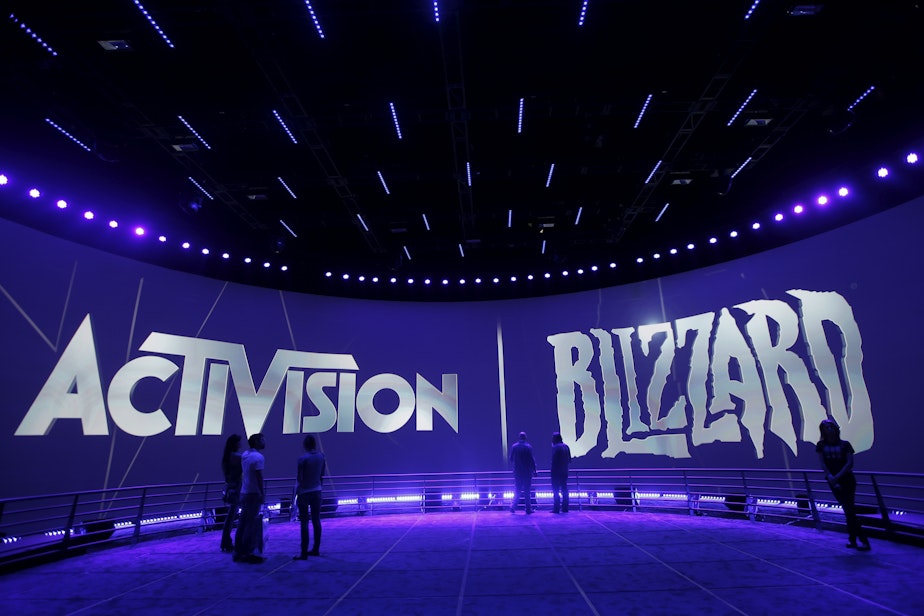Microsoft's $69 billion deal to acquire Activision-Blizzard faces FTC suit

The 90s are so in right now. The signs are everywhere — bucket hats, boy bands, and Microsoft battling a major consumer software antitrust lawsuit.
In a deal that may go down as the largest video-game merger of all time, Microsoft, the maker of the Xbox, is attempting to buy Activision Blizzard, which is responsible for the games, "World of Warcraft," "Diablo," and "Call of Duty," as well as the company that makes "Candy Crush."
If the deal were to go through, the purchase price for Activision Blizzard is $69 billion, but the Federal Trade Commission is suing to block the merger.
"They're concerned that, that at the highest level, it would harm competition," says Dina Bass, Bloomberg News' tech reporter and Seattle bureau chief, "they're worried that Microsoft might use this deal to withhold content from gaming rivals like Sony."
Withholding popular games from non-Microsoft consoles isn't the only concern about the proposed merger.
Bass says that the FTC, along with regulators in the UK and the European Union, are worried that Microsoft will use the deal to advantage its cloud gaming service, and Game Pass, the company's gaming subscription service. The subscription works like a streaming service, where users pay a monthly fee for unlimited access to games instead of purchasing a single game download.
Sponsored
Regulators are concerned that combining popular Activision releases like "Call of Duty" with Microsoft's Game Pass would create such a good offer to video game players that other services wouldn't be able to compete.
Microsoft President and Vice Chair Brad Smith defended the acquisition in a Wall Street Journal op-ed, saying the acquisition is about mobile gaming, where Microsoft has a small footprint.
Bass also says that Sony's Playstation is such a large market for Activision games like "Call of Duty," that if Microsoft withheld those games, the deal would become cost prohibitive.
The suit does give a view into the priorities of FTC Chair Lina Kahn, trying to prevent large companies from cornering future markets through acquisitions.
Microsoft is a leader in cloud gaming, where no console is necessary and games are streamed to a device. Today, Bass says the market for this service is small, but this deal could give Microsoft a lock on that market if and when it blossoms.
Sponsored
"That is a bit of a hallmark of Lina Khan's FTC, this attempt to look at deals that give a tech company control over a future large market, even though the market is now very small," Bass says.






